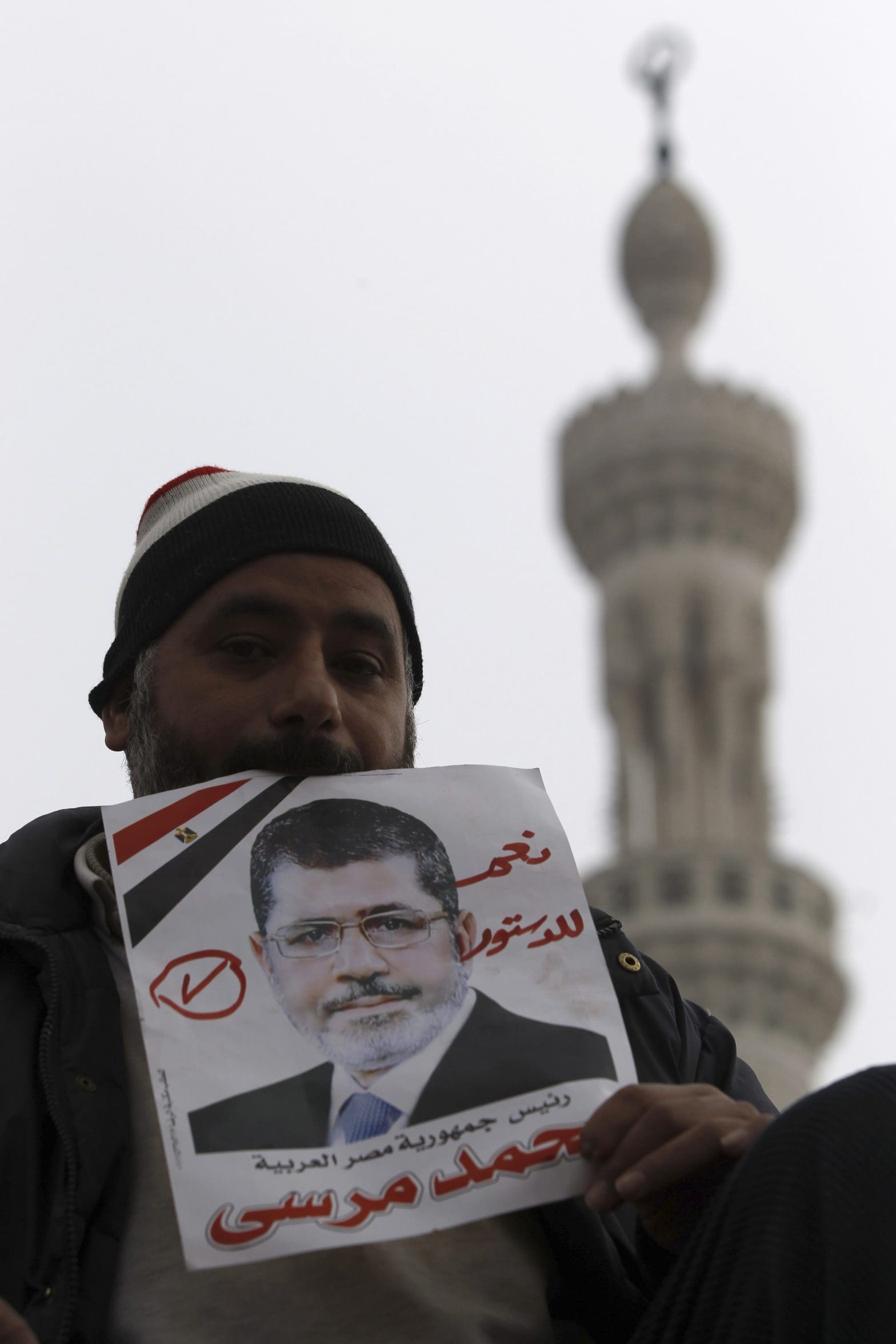In Egypt’s parliamentary elections of November 2005, the Muslim Brotherhood won 88 of 454 seats, making it the largest opposition bloc in the country. The Brotherhood’s agenda at the time was characterized by a new emphasis on democratic reform. This agenda included demands widely backed by all strains of pro-democracy activists: changing legislation that allowed the imprisonment of journalists, granting independence to Egypt’s judges and canceling a 25 year-old emergency law.
Now that the Brotherhood has risen to power, the history of its moderation – how it came to be seen as a democratic actor – is being questioned. The Brotherhood must respond by re-affirming its democratic bona fides not just in rhetoric but in actual practice. At this critical stage, it is important that the organization de-emphasize its ideological and organizational advantage and recognize that in a fragile process of democratization, even the perception of authoritarianism – regardless of a popular mandate – can be very damaging indeed.
In the political vacuum created by the Egyptian revolution, individual groups have often approached democracy not simply as an ideal to uphold, but as a means to achieve and sustain their power. Islamists and liberals alike are – naturally – trying to use democratic participation as a means to secure political gains. Detractors of each camp, meanwhile, point to ways in which the other is in fact “undemocratic.” Despite the Brotherhood’s electoral success, some Arab and Western journalists and intellectuals maintain that it is not and can never be a democratic actor. Islamists, on the other hand, argue that their opponents’ failure to respect the group’s repeated successes at the polls proves they are not true democrats. If democracy is to genuinely and successfully take hold in Egypt, both Islamists and their rivals need to go beyond rhetoric formed by ideological confrontation.
To be sure, today’s problems are not caused simply by President Mursi’s actions or by the controversy over the country’s constitution, which was signed into law last month. They are the result of a wider political culture of cynicism and distrust. The extent of distrust often masks the similarities between these factions; Egyptian liberals and Islamists both believe Islam and even Islamic law are compatible with democracy. They both claim to champion and cherish democracy, but not enough to actually practice it. As the two camps become further polarized, an “us versus them” mentality is becoming so ingrained that it has become a serious threat to the social fabric and political life of post-Mubarak Egypt.
Following the latest decrees expanding President Mursi’s powers, some have again started to characterize him and the Brotherhood not just as flawed democrats, but militants, terrorists, and fascists – the old stereotypes of political Islam. Even after canceling the November decree that sparked recent protests, some opposition groups still see all measures taken by Mursi as “illegitimate.” On the other hand, Mursi and the Brotherhood continue to claim that there are any number of conspiracies against them. It has become routine for the group’s officials to insinuate, without a shred of evidence, that an opposition figure has been bought, is biased, or has a foreign agenda.
The Brotherhood has historically acted in a positive manner as a peaceful, non-violent mainstream organization that has worked intensely within the framework of democracy. If it wishes to maintain this image, the group will need to project its honest, peaceful, cooperative impulses. It can do this through four main efforts: engaging in genuine self-criticism and acknowledging recent mistakes, maintaining a record of keeping its protests peaceful, emphasizing the importance of societal dialogue and stating that the Muslim Brotherhood will not impose its interpretation of Islam on society. The process of defining a constitutional democracy is about more than the imposition of one group’s will through securing a slim majority.
The opposition, on the other hand, may need to re-evaluate their preconceived notions of democracy and participation. If Mursi fails to stick to promises he made during his campaign, this can be used to call people not to vote Brotherhood in the future. But at the moment all must abide by the rules of the democratic game. Some argue that no matter how democratic Islamists become, liberals and secularists will always view them as aggressive and totalitarian. Regardless of how these groups view Islamists, they should resist their impulse to reject all cooperation with the Muslim Brotherhood and other groups. As part of this effort the Egyptian opposition should accept the new constitution that was approved by a majority in last month’s referendum. Egyptians have backed a constitution that has managed to deeply polarize the country – there is a need now to seek ways to end that polarization and provide the stability needed to help an extremely fragile Egyptian economy.
As the experience of Egypt’s first revolutionary parliament showed – before it was dissolved last June – politics will force both liberals and Islamists to work with each other on issues of concern to both parties. It may be unclear at this stage whether these efforts at cooperation will diminish current levels of polarization. Both Islamists and liberals should take into consideration, however, that there are new actors such as labor unions, employers’ associations, revolutionary groups and other civil society groups which gained a sense of empowerment after the revolution. Often, it is these groups that are most able to cross ideological lines and truly represent social interests. They constitute the real revolution in Egyptian society, and provide an example that politicians would do well to follow.

